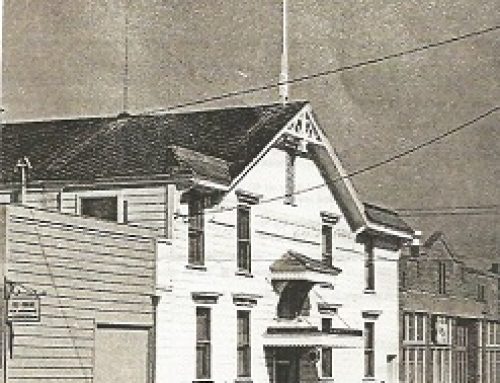As I continue to wade through the historic “golden nuggets” (documents, photographs, files) stored in the Hoppy Hopkins Research Library on the second floor of the Petaluma Historical Museum & Library, our local “Treasure Chest,” I discovered that there was a college located in Petaluma in the 1860s for four years. (However, no photograph available.)
On August 15th, 1866, Preparatory Department of the Petaluma College opened. Professor Mark Bailey was placed in charge. The school was open to all regardless of religious preferences, although it was under the supervision of the Baptist denomination. The program of instruction included Science, Literature, and the Arts; the same as best colleges of the United States. Students who wanted to become lawyers, doctors, or ministers, found introductory courses to those professions available at Petaluma College.
Pupils were allowed to enter at any time, and each term ended with examinations. Tuition fees ranged from $3-$4/month for academic courses, and $6/month for classical and scientific classes. Vocal music was free. A $30/month fee was charged for tuition, board, and washing, and was payable in advance; except for those students who were boarding in the Institution. They were quarterly. Women seeking a residence were allowed to board in the College building, while men could find accommodations with private families at reasonable prices. Books and stationary was purchased in Petaluma at San Francisco prices.
The following information about Petaluma, copied from the First Annual Catalog of the Petaluma College, 1867 (p.16), states: “Petaluma is located in one of the most beautiful, picturesque, and healthful regions of the state, fifty miles by water from San Francisco. The fare by steamboat is only one dollar from San Francisco. It is accessible by steamboat and stage from all parts of the state. The city is thrifty, and rapidly growing; churches of all denominations are prosperous; and few places afford equal attractions to parents who desire to settle where they have good social, religious, and educational advantages for their children; and there are none where their children will be under better influences while pursuing their studies away from home.”

